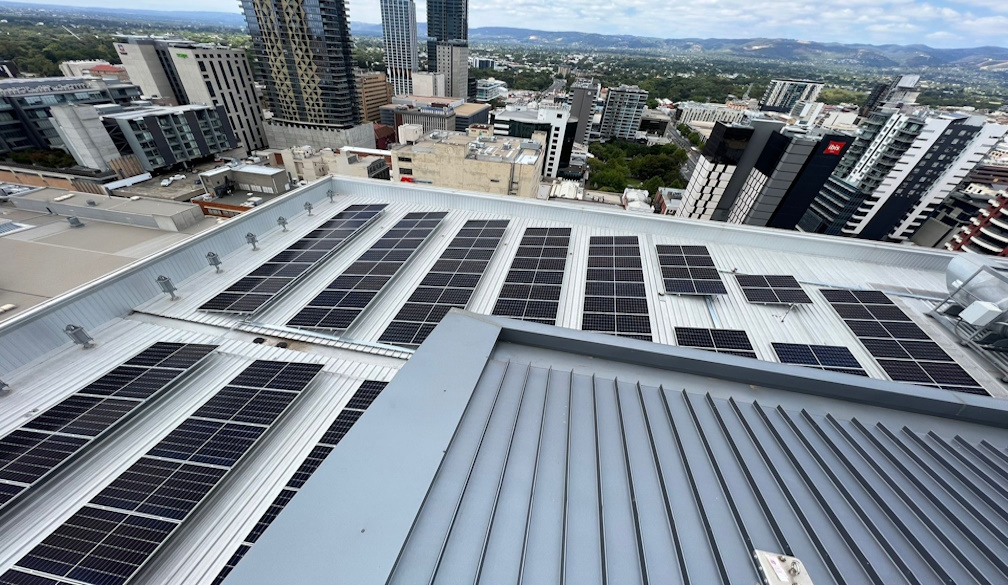Groundbreaking investment positions Agile Energy to slash power costs for Australian businesses and accelerate Australia’s rise as a green economic powerhouse
- Written by Daily Bulletin

Agile Energy is now positioned to play a defining role in reducing energy costs for Australian businesses and fast-tracking the nation’s transformation into a globally competitive green economic powerhouse, following a landmark investment partnership from Five V Capital and the Clean Energy Finance Corporation (CEFC).
The first collaboration of its kind in Australia’s commercial and industrial clean-energy sector, the investment gives Agile Energy the institutional backing required to roll out more than 200 MW of rooftop solar and battery systems to businesses nationwide. This will allow Australian businesses to access cleaner, cheaper and more secure energy at scale and without upfront capital outlay.
This strategic partnership strengthens Australia’s ability to shift rapidly toward a decentralised, low-carbon, high-productivity energy future, with Agile Energy at the centre of delivering it.
Driving down business energy costs, fast and at scale
Rising grid prices continue to put pressure on Australian businesses. Agile Energy’s zero-capex Power Purchase Agreements (PPAs) offer immediate relief by giving businesses access to cheaper, stable and long-term renewable power.
The rollout of 200 MW of Agile Energy solar and battery systems will enable businesses across manufacturing, logistics, industrial, retail, healthcare, property and construction to dramatically reduce energy costs while improving operational certainty and reducing exposure to volatile grid pricing.
This next era of distributed clean-energy deployment positions Australia as a leader in the global green economy, where lower energy costs become a competitive advantage rather than a barrier to growth.
Jack Kapoor, Chief Executive Officer of Agile Energy, said the investment represents a transformational moment for both the company and the nation.
“This commitment accelerates our mission to make clean energy accessible and financially compelling for Australian businesses,” he said.
“Five V and the CEFC bring not just capital, but deep institutional expertise in scaling sustainable infrastructure. Together, we’ll unlock hundreds of megawatts of rooftop and on-site solar and batteries.
“Working with Five V Capital and the CEFC strengthens our capacity to move faster, scaling to 200 MW and beyond while maintaining the discipline, data and outstanding delivery that define Agile Energy. This is institutional capital backing local execution.”
A national blueprint for a green economic powerhouse
This investment marks Agile Energy’s evolution from a successful 50 MW deployment track record into a national platform capable of delivering clean-energy infrastructure at a scale that shifts the economic landscape.
By supplying affordable renewable energy directly to business customers, Agile Energy is strengthening national productivity, enabling businesses to reinvest energy savings into growth and innovation, and helping entire industries decarbonise without financial barriers.
The partnership between Five V Capital and the CEFC creates the conditions for a major acceleration in Australia’s shift toward modern, low-carbon industrial capability.
Institutional endorsement of Agile Energy’s role in lowering costs
Patrick Rodden, Managing Director at Five V Capital, said Agile Energy’s model directly addresses the biggest cost challenge facing Australian businesses.
“Agile Energy represents the next generation of clean-energy infrastructure platform, founder-led, execution-focused and driven by data, discipline and exceptional customer outcomes. We’re excited to partner with the Agile Energy team to help scale the company’s growth nationally and invest institutional capital into a sector that delivers outstanding returns for customers and the environment,” he said.
Malcolm Thornton, CEFC Head of Growth Capital, said Agile Energy’s national rollout will significantly improve both affordability and decarbonisation outcomes.
“Commercial and industrial customers are essential to Australia’s decarbonisation journey. The CEFC commitment to Agile Energy will help accelerate the uptake of rooftop solar and battery solutions for Australian businesses, making clean energy more accessible and affordable. By supporting the growth of innovative providers in this sector, we’re enabling more companies to cut energy costs,” he said.
David Margolius, Chief Commercial Officer of Agile Energy, said the partnership strengthens customer confidence.
“Demand from Australian businesses for secure, low-cost clean energy continues to grow. With institutional capital now aligned behind Agile Energy, customers can rely on fully bankable solutions underpinned by robust infrastructure and proven long-term operational performance,” he said.
About Agile Energy
Agile Energy is one of Australia’s fastest-growing clean-energy companies, delivering large-scale solar, battery and electrification solutions for the commercial, industrial, healthcare and property sectors. The company designs, finances, builds and operates integrated clean-energy systems that help businesses reduce costs, decarbonise operations and participate in virtual power networks. With deep engineering expertise, financial discipline and a long-term ownership mindset, Agile Energy is redefining how organisations generate, store and trade electricity creating measurable financial and environmental performance across Australia’s transition to a smarter, more resilient energy future.








